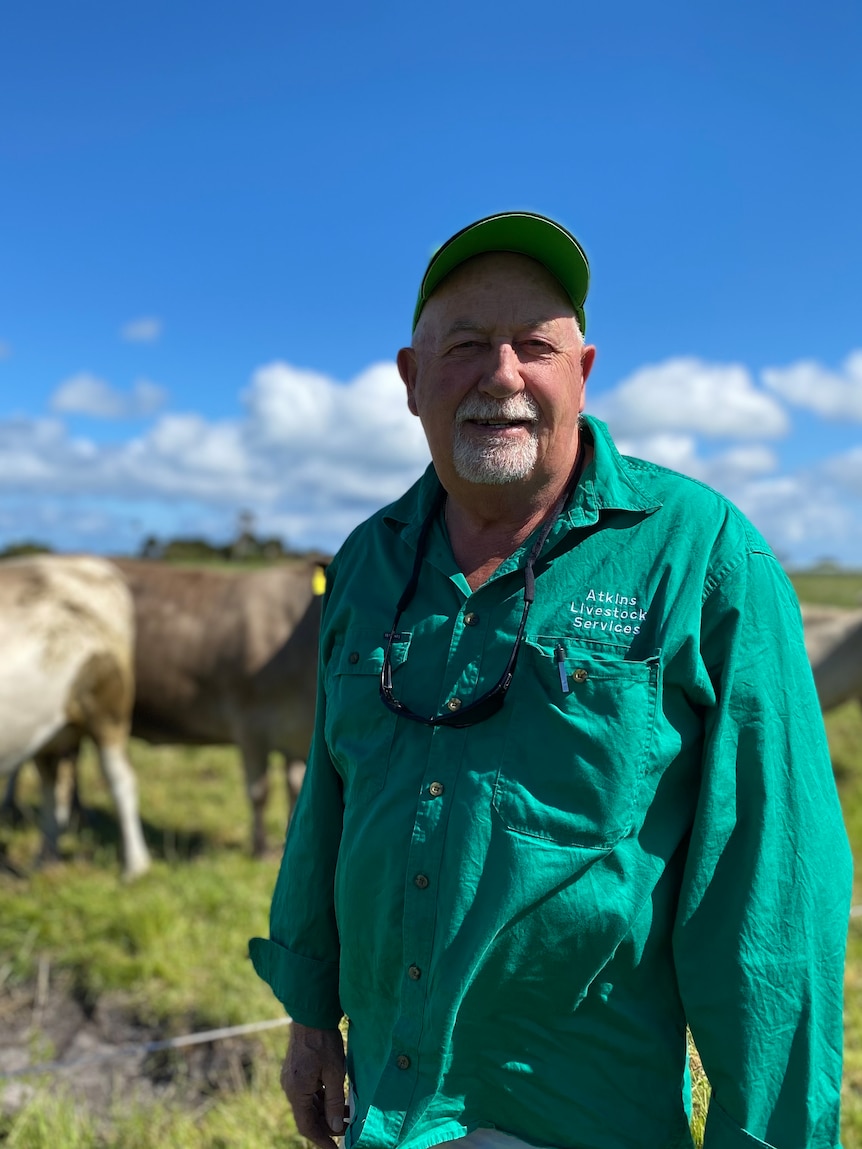Life in the country is a dream for folks who love to spend their time outside.
But that outdoor lifestyle comes with a snag — the sun.
Regional Australians are at greater risk of melanoma and skin cancer than their city counterparts, and a shortage of dermatologists means treatment wait times can seem as long as an Australian summer.
But local GPs are stepping in to bridge the gap, with hundreds training to spot potential life-threatening skin cancers.
GP the ‘first port of call’
Advocates say reaching out to your doctor as soon as you find a suspicious skin spot could save your life.
It is an experience that beef farmer and keen ocean fisher Bernard Atkins from Stanley in north-west Tasmania knows only too well.
“When we were younger on the farm, we probably didn’t wear hats and we certainly didn’t have sunscreen,” he said.
It took having a coffee with a friend who served in the navy for Mr Atkins to realise he might have a problem.
“He said, ‘Mate, I don’t like the look of that black spot on top of your head … I’d go and get it checked out’,” Mr Atkins said.
That spot was put under observation, but a lump on his lip caught his doctor’s eye.
“Next day I was on the farm and I got a phone call saying, ‘I’ve got some bad news for you. Not only have you got a cancer in your lip, but it’s very aggressive and we’ve got to get it out within 14 days’.”
At a check-up following his lip surgery, the spot on Mr Atkins’ head was also found to be cancerous, which needed more extensive surgery.
Australia leads the world for rates of melanoma, which is often called Australia’s “national cancer”.
Melanoma is the most common cancer for people aged between 20 and 39, and rates are increasing for people over 60, according to support and advocacy group Melanoma Patients Australia.
Georgina Long and Richard Scolyer were named 2024 Australians of the Year for their ground-breaking melanoma research, and have been using their platform to call for targeted skin cancer screening programs, better community outreach, and more research.
Bridging dermatologist shortages
There are 645 registered dermatologists in Australia — one for about every 40,000 people — compared with about 1,600 cardiologists.
A SunSmart program has trained hundreds of GPs to spot potential skin cancers to bridge the shortage of dermatologists in regional areas.
Dr Maxine Waycott served Victoria’s Bellarine Peninsula and said more local doctors would benefit from being trained to assess skin spots.
“Being a GP in a regional area, we have a shortage of all sorts of specialists and particularly in the Geelong region we have a real shortage of dermatologists,” she said.
“It’s really hard for patients to get in to see a specialist, whether a dermatologist or a plastic surgeon.
“It’s also costly or there’s a really long wait in the public system.
“It’s great for general practitioners to be able to be more confident and better at early pick-ups of skin cancers … and then treat more of them ourselves in a clinic or a situation where patients are comfortable and it’s easier for them to get to.”
It’s a ‘life and death’ thing
Meanwhile, health workers warn that adopting a “she’ll be right” attitude to sun protection and skin cancer is playing with fire.
“It won’t be all right because I tell you what, it becomes a life and death thing,” Mr Atkins said.
“What I’ve been through, I’ve been pretty lucky.
“If you’ve got something that you’re not happy with and it changes or something happens, you get it checked out — and you should get checked out once a year anyway.”
Emma Glassenbury, head of the skin cancer prevention program SunSmart, says that is “a fantastic message”.
“The sooner skin cancer is found, the better the health outcomes and the treatment options,” she said.
“We know if skin cancer is found early, it’s almost entirely curable.”
Stories from farms and country towns across Australia, delivered each Friday.




